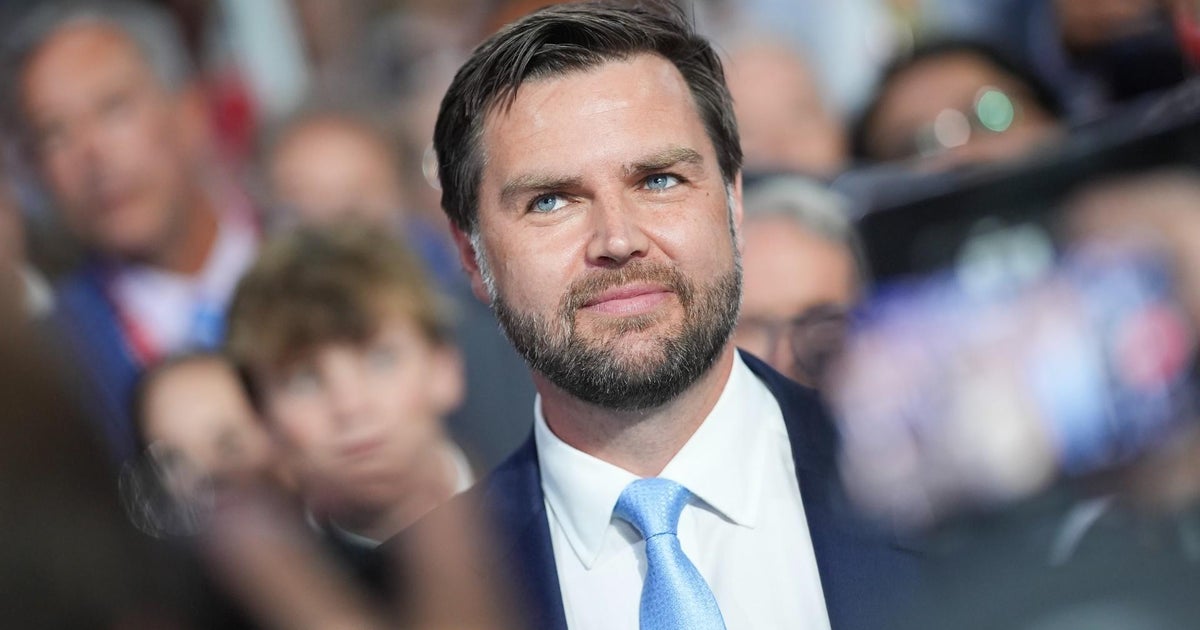
Where does JD Vance stand on key economic issues?
CBSN
JD Vance's career has followed a classic American rags-to-riches trajectory: After growing up in poverty in rural Ohio, he was accepted at an Ivy League university, finished a law degree, and leveraged his new connections into wealth and a seat in the U.S. Senate.
While that part of Vance's biography may be familiar to voters, thanks to his best-selling 2016 memoir "Hillbilly Elegy" and frequent media appearances as a senator, his economic views are less well known. But with former President Donald Trump having picked him as his running mate for November, Vance's economic views on everything from trade to tech are drawing scrutiny.
While Vance, 39, is known for changing his views – he once called Trump "cultural heroin" — he's long espoused the idea that Americans in economically struggling regions of the country need to exercise willpower to improve their lives, rather than rely on government programs.

More employees of the Environmental Protection Agency were informed Wednesday that their jobs appear in doubt. Senior leadership at the EPA held an all-staff meeting to tell individuals that President Trump's executive order, "Ending Radical and Wasteful Government DEI Programs and Preferencing," which was responsible for the closure of the agency's Diversity, Equity, and Inclusion office, will likely lead to the shuttering of the Office of Environmental Justice and External Civil Rights as well.

In her first hours as attorney general, Pam Bondi issued a broad slate of directives that included a Justice Department review of the prosecutions of President Trump, a reorientation of department work to focus on harsher punishments, actions punishing so-called "sanctuary" cities and an end to diversity initiatives at the department.

The quick-fire volley of tariffs between the U.S. and China in recent days has heightened global fears of a new trade war between the world's two largest economies. Yet while experts think the battle is likely to escalate, they also say the early skirmishes offer hope for an agreement on trade and other key issues that could head off a larger conflict.










